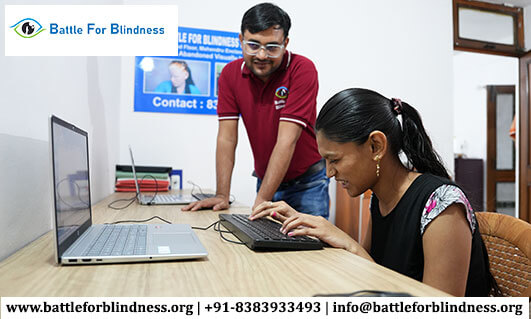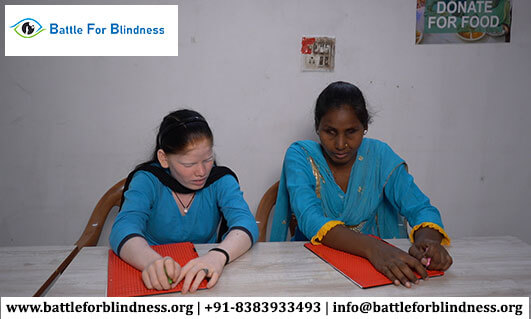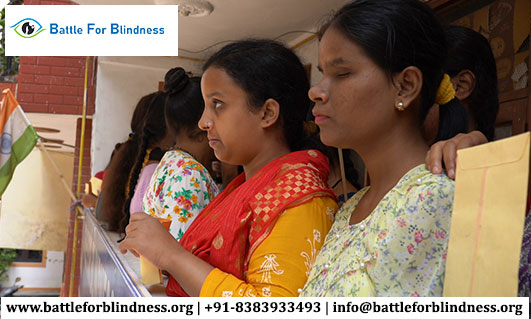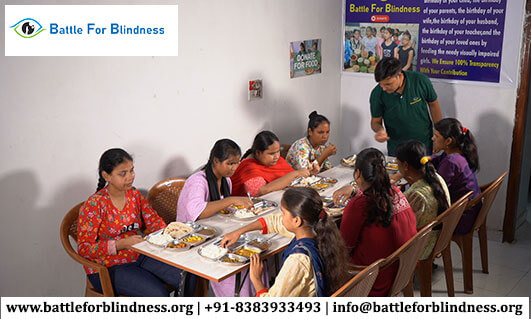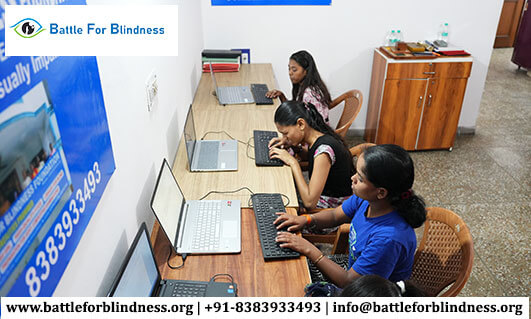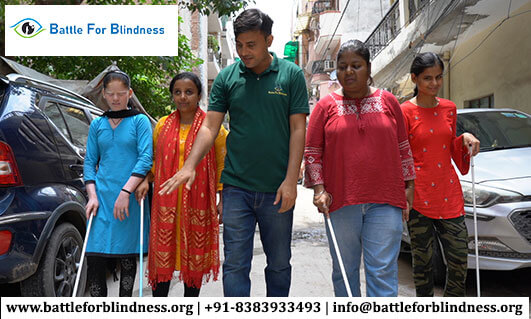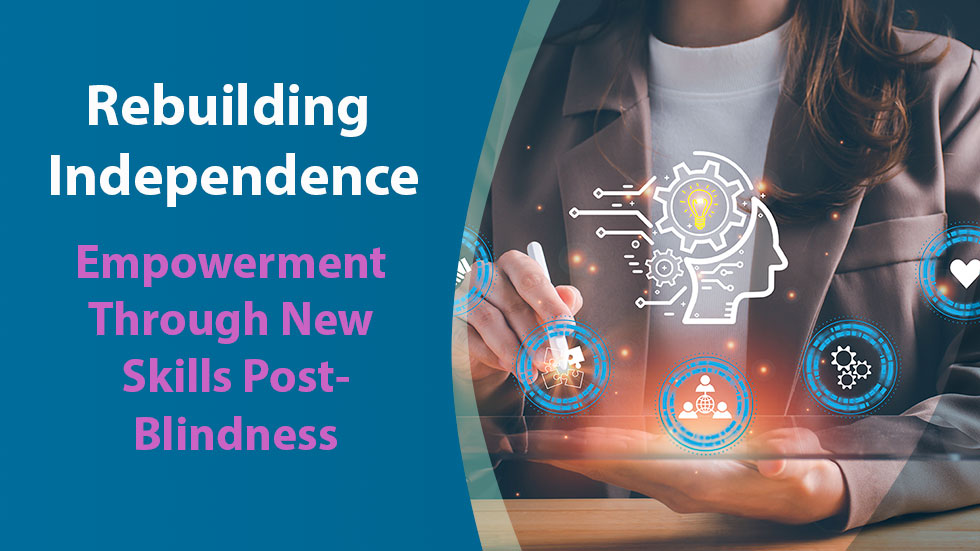
For those who experience vision loss, learning new skills is often the gateway to regaining independence and discovering a renewed sense of self-confidence. While the transition can be challenging, it opens doors to empowerment, resilience, and adaptability. Adapting to vision loss involves more than learning to navigate physical spaces; it encompasses reshaping one’s abilities, routines, and perspective. Here, we explore essential skills that can help individuals thrive, emphasizing practical training, emotional support, and the transformative power of adaptability.
1. Mastering Orientation and Mobility Skills
Orientation and mobility (O&M) training is vital for those adapting to vision loss. The purpose of O&M training is to empower individuals to navigate their environments confidently and independently. Key areas covered in this training include:
-
Cane Techniques: White cane training is foundational for safe and confident navigation. Instructors teach different cane techniques, helping users detect obstacles, steps, and open spaces.
-
Guide Dog Training: For those interested, guide dog training offers an alternative method of navigation, providing companionship and enhancing mobility.
-
Public Transportation Skills: Learning to use public transportation independently is crucial for many people. O&M instructors often offer step-by-step training on reading bus schedules, planning routes, and asking for assistance when needed.
By mastering these skills, individuals regain confidence, freedom, and a sense of control over their mobility.
2. Developing Daily Living Skills for Independence
Vision loss can make daily activities, such as cooking, grooming, and managing finances, more complex. Learning adaptive techniques is essential for maintaining independence. Training programs at vision rehabilitation centers often cover:
-
Cooking Techniques: Simple adaptations, like organizing ingredients in labeled containers or using tactile markers on appliances, can make cooking safer and easier.
-
Grooming and Self-Care: Self-grooming training, including tips on organizing personal care items and learning touch-based techniques, helps individuals maintain a personal care routine with confidence.
-
Household Management: Tips on cleaning, laundry, and other household tasks help individuals manage their homes with ease, enhancing comfort and safety.
Mastering these skills can foster a sense of independence, making it easier to maintain a fulfilling lifestyle.
3. Embracing Assistive Technology for Accessibility
Assistive technology has revolutionized the opportunities available to individuals with vision loss. Devices like screen readers, Braille displays, and voice-activated assistants make everyday tasks accessible, from reading emails to managing finances. Some of the most widely used assistive technologies include:
-
Screen Readers: Programs like JAWS and NVDA read text aloud, allowing users to navigate computers, browse the internet, and use software independently.
-
Smartphone Accessibility Features: Most smartphones have built-in accessibility tools like VoiceOver for iOS and TalkBack for Android, making it possible to perform various tasks using only touch and audio feedback.
-
Voice-Activated Assistants: Smart home devices like Alexa, Google Assistant, or Siri can help set reminders, control appliances, and even provide audio instructions, adding ease and independence to daily routines.
Mastering these tools can make a world of difference in work, education, and daily life, fostering self-sufficiency and opening up new career opportunities.
4. Building New Social Skills and Communication Techniques
Effective communication is essential for building relationships and advocating for one’s needs. Learning techniques for social interaction and self-advocacy can be empowering, especially in professional settings. Key skills to develop include:
-
Self-Advocacy: Being able to articulate personal needs, such as asking for accommodations or seeking assistance in public spaces, is crucial. Self-advocacy training can build confidence and ensure individuals feel empowered in their interactions.
-
Social Interaction Skills: Maintaining eye contact and recognizing facial expressions can be challenging after vision loss. Learning to interpret tone of voice, body language, and verbal cues can improve social interactions, making connections more comfortable and meaningful.
5. Exploring New Hobbies and Recreational Skills
Learning new hobbies post-vision loss can bring joy, relaxation, and purpose. Many recreational activities can be adapted, enabling individuals to engage fully and discover new talents. Some accessible hobbies include:
-
Adaptive Sports: Sports like goalball, blind soccer, and tandem cycling are designed specifically for people with vision impairments, fostering physical health and providing a social outlet.
-
Arts and Crafts: Tactile arts, such as sculpture, pottery, and music, allow individuals to express creativity through touch and sound, making artistic expression accessible.
-
Gardening and Cooking: Tactile skills and sensory enjoyment make gardening and cooking great hobbies for those with vision loss, as they offer a hands-on connection with nature and flavors.
Exploring hobbies that emphasize sensory experience and creativity can lead to lifelong enjoyment and social engagement.
6. Engaging in Career Development and Vocational Training
For many, maintaining a career or transitioning into a new one is an essential goal after vision loss. Vocational training can support this goal by developing skills that align with professional goals. Key areas include:
-
Job Skills Training: Vocational rehabilitation programs offer job skills training for individuals with visual impairments, helping them learn to use adaptive technology in work environments.
-
Career Counseling: Counselors can provide career assessments, helping individuals identify their strengths and explore career paths that align with their interests and skills.
-
Legal Rights and Accommodations: Understanding workplace rights and accommodations is essential for building a successful career. Learning about the Americans with Disabilities Act (ADA) and other legislation provides valuable insight into workplace rights and protections.
With the right support, individuals with vision loss can continue to pursue their career goals, whether in their current field or a new one, ensuring that vision loss does not hinder professional growth.
7. Practicing Self-Care and Mental Resilience
The process of adapting to life with vision loss requires mental resilience and self-care. Building mental well-being through self-care practices is essential for overcoming challenges and staying motivated. Strategies to maintain a positive outlook include:
-
Meditation and Relaxation: Mindfulness meditation, deep breathing, and relaxation exercises can reduce stress and improve mental clarity, providing an emotional boost during challenging times.
-
Connecting with Support Groups: Being part of a community of individuals who have had similar experiences provides encouragement, shared strategies, and inspiration.
-
Setting Small, Achievable Goals: Setting and celebrating small goals can keep individuals motivated and provide a sense of accomplishment, helping them see progress along the journey.
Resources for Learning New Skills
Numerous organizations offer training and support for individuals adapting to life with vision loss. Some key resources include:
- American Foundation for the Blind (AFB): Offers training in O&M, technology, and life skills.
- National Federation of the Blind (NFB): Provides community support, resources, and advocacy.
- Vision Rehabilitation Centers: Many local centers offer daily living skills training, vocational assistance, and support groups.
Conclusion
Acquiring vision loss often leads to unexpected challenges, but it also reveals new strengths, resilience, and adaptability. By learning essential skills, embracing assistive technology, and fostering a strong support network, individuals can regain independence and confidence. Adjusting to life with vision loss is not just about adapting—it’s about thriving in a new reality filled with potential, purpose, and possibilities.
